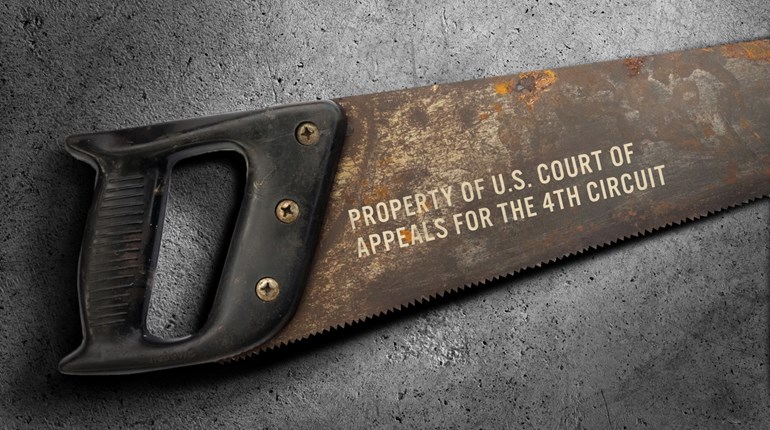
The Social Security Administration, created to administer public retirement benefits, is now poised to deny the Second Amendment-protected rights of tens of thousands of recipients.
Editor’s Note: Since this feature appeared in the print version of America’s 1st Freedom magazine, Congress and President Donald Trump rolled back the Obama-era regulation allowing SSA to infringe on the Second Amendment rights of benefit recipients without due process. Read more here.
This feature appears in the March ‘17 issue of NRA America’s 1st Freedom, one of the official journals of the National Rifle Association.
It is a law of political nature that all federal departments must eventually gain wandering eyes. By now, the process of expansion is drearily familiar. First, a problem is identified and a law is passed. Second, an agency is established to enforce that law. And then, as the ugly and inevitable third step, that agency broadens and metastasizes in a manner that would have been unimaginable to its well-intentioned progenitors. In come the layers of administrators; out go the edicts and the decrees; and, slowly but surely, a creeping question comes readily to be entertained: “What if we just ...
The latest department to fall prey to this tendency is the Social Security Administration, which, under the last-gasp direction of the Obama White House, is in the midst of being transformed into a crack gun control squad. Thanks to a rule that was finalized in December, the government agency has been given the power to strip law-abiding Americans of their Second Amendment-protected rights without the involvement of a court. Thus, a bureau that was created solely to dispense checks is on the verge of being casually transmuted into a law-enforcement team.
As so often is the case, the justification for the change is vague to the point of obscurity. In a press release explaining the measure, the Obama administration contended that the policy was necessary on the grounds of “mental health.” Specifically, the administration confirmed, the Social Security Administration (SSA) would be adding to the National Instant Criminal Background Check System (NICS) “forbidden” list the name of any disability insurance or Supplemental Security Income recipient whom it deemed to be a “mental defective.” Under existing federal law, Americans who are deemed in a legal proceeding to exhibit “marked subnormal intelligence, or mental illness, incompetency, condition, or disease” that makes them a danger to themselves or others, or incapable of contracting or managing their own affairs, can be prevented from buying guns. Henceforth, the bureaucrats at the pension office will get to decide who qualifies.
The flaws in this approach are both legion and self-evident. For a start, the maneuver brazenly undermines separation of powers by turning the Social Security Administration into judge, jury and executioner. On its website, the department confirms that it has compiled a list of “medical conditions that we consider severe enough to prevent a person from doing any gainful activity, regardless of age, education, or work experience,” and explains that “if we find an individual to be disabled based on a listing-level mental impairment, and he or she satisfies all of the remaining requirements, we are required to report them to the NICS.” But who, one must ask, is “we”? Traditionally, those who find themselves on government lists got there with the oversight of a third party, be that a court, a doctor or a magistrate acting per curiam. Under the new SSA rule, by unlovely contrast, the agency will decide whom to exclude motu proprio, as might a king or an emperor. Writing in 1788, James Madison was blunt in his assessment of such arrangements: “The accumulation of all powers, legislative, executive, and judiciary, in the same hands,” Madison wrote, “may justly be pronounced the very definition of tyranny.”Obama seems to have done here what he has always done—to achieve by bureaucratic fiat what he could not achieve by the consent of the governed.
Second, many of the criteria by which Americans will be deemed to have a disqualifying “mental impairment” are terrifyingly slippery. Consider, by way of example, that one of the SSA’s “tests” for mental illness is whether a recipient can manage his own money without help—a gauge that, in the view of Yale psychiatrist Marc Rosen, makes no clinical sense at all. “Someone can be incapable of managing their funds but not be dangerous, violent or unsafe,” Rosen told the Los Angeles Times in 2015. “They are very different determinations.” The National Council on Disability agrees with Rosen, and has made it clear that it will fight any policy that uses the appointment of a representative payee as an excuse to strip rights from the disabled.
At one level, one senses that the Obama administration understands how dangerous its approach is likely to be, which is one reason that its defenses of the rule have been so embarrassingly self-contradictory. In the space of the same December press release, the White House contended both that it was “not attempting to imply a connection between mental illness and a propensity for violence, particularly gun violence,” and that its coveted measure is imperative because “incidents of violence continue to highlight a crisis in America’s mental health system.” Well, chaps, which is it?
Third, the proposed due process protections are disgracefully inadequate. The Obama administration assures its critics that a robust appeals system will be provided to those who are caught erroneously in the net. Again, though, one might ask, “So what?” The Second Amendment is not a privilege that one is obliged to argue one’s way into enjoying, but a constitutionally enumerated right that cannot be infringed without extraordinarily good cause. Moreover, under Anglo-American law, the burden of proof in the deprivation of life, liberty, or property falls upon the government, not upon the individual. Effectively, the SSA is being given the power of untrammeled prior restraint, the understanding being that those who are wronged can eventually make a positive case for their liberty. That, to quote a popular television commercial, is not how any of this works.
While the context is a touch different, there are clear similarities between Obama’s plan for the SSA and his attempt last year to achieve gun-control-by-watchlist. In late 2015, as Obama, Nancy Pelosi, Chuck Schumer and co. tried to push their tyrannical watchlist bill through Congress, a writer at The Washington Post perfectly encapsulated the problem with executive-led denials of rights. “How to ban guns:” Philip Bump wrote. “Step 1: People on no-fly list can’t buy guns. Step 2: Everyone goes on no-fly list.” Bump wasn’t joking. “If you link banning guns to the no-fly list,” he observed, “the scenario presented is completely feasible: The government could theoretically add anyone it wants to the no-fly list, even broad categories of people, and thereby prevent them from owning a gun.”
Precisely the same problem exists with the SSA. Pushing back against the barrage of criticism, apologists for the new rule have been keen to point out that it doesn’t apply to everyone receiving Social Security. That is true. But so what? Free countries do not judge the integrity of rights numerically; they judge them substantively. As one would not justify censorship of the press on the grounds that only some outlets had been affected, one should not acquiesce to illegitimate new gun control laws simply because their impact will be limited to a subset of the whole. If the new SSA rule goes into effect, the federal government will have yet another means by which to limit constitutional rights without due process. Regardless of one’s views on the right to keep and bear arms, that should represent a deeply alarming prospect.
That the Obama administration has defended its idea so clumsily is instructive. Indeed, by dissembling so publicly as to the purpose of the change, the White House has raised the obvious question: What exactly prompted this in the first place? As far as I can tell, there have been no incidents involving the recipients of SSI or disability insurance, nor has anyone other than the president made the case that the people of the United States will be at risk unless the Social Security Administration reports more people to the FBI.
What, then, has provoked the alteration? The simple answer, I suspect, is that this was a late-stage power grab ahead of what was assumed to be Hillary Clinton’s ineluctable assumption of power. Frustrated by Congress, by the courts and by public opinion, Obama seems to have done here what he has always done—to achieve by bureaucratic fiat what he could not achieve by the consent of the governed, and then hope that nobody he dislikes ever wins an election.There is no place in the United States for the bureaucratic vetoing of the Bill of Rights; no circumstance in which the executive branch can legitimately appropriate functions that are reserved to the judiciary; and no good that can come of the idea that governments may strip away liberties at will and then demand that the citizenry explain why they were wronged.
That Clinton did not follow Obama into the Oval Office should please anybody who is disturbed by this edict. But it should not set their mind entirely at rest. One of the most dismaying parts of the post-New Deal settlement has been the tendency of the bureaucracy to expand and to consolidate power regardless of who is elected to govern. Ronald Reagan once quipped, “A government bureau is the nearest thing to eternal life we’ll ever see on this earth,” and he was correct to say so. As we have learned over the last century or so, rare is the emergence of a temporary rule or law, and even rarer is the bureaucrat who is content within his remit.
As such, the long-term consequences of any augmentation of administrative power are potentially deleterious. Should the SSA become even briefly accustomed to stripping Americans of their Second Amendment-protected rights, the numbers will soon creep up, the criteria will swiftly be broadened and the behavior will become so distressingly habitual as to ensure its continuation irrespective of the public will. Worse still, the model will be exported to other agencies that have no business involving themselves in this realm. If, as is now the case, the SSA can deem those who cannot manage their finances to be mentally deficient, what is to stop the IRS from excluding anyone who outsources his tax preparation or the Education Department from reporting students with learning difficulties?
Which is to say that this edict must be reversed post haste, and thereby killed in its infancy. The American people remain considerably freer than those in other countries, but it must be remembered that liberty is not self-executing and that essential notions of good governance can atrophy over time. There is no place in the United States for the bureaucratic vetoing of the Bill of Rights; no circumstance in which the executive branch can legitimately appropriate functions that are reserved to the judiciary; and no good that can come of the idea that governments may strip away liberties at will and then demand that the citizenry explain why they were wronged.
The SSA was created to collect taxes and distribute pensions, and to do little else besides. It has no warrant to police the purchasing of arms. It has no authority to diagnose malady or infirmity. And it has no right to mushroom its way into playing judge or jury. Here is a line that it must not cross, on this day or the next.
Charles C.W. Cooke is the editor of National Review Online.


































